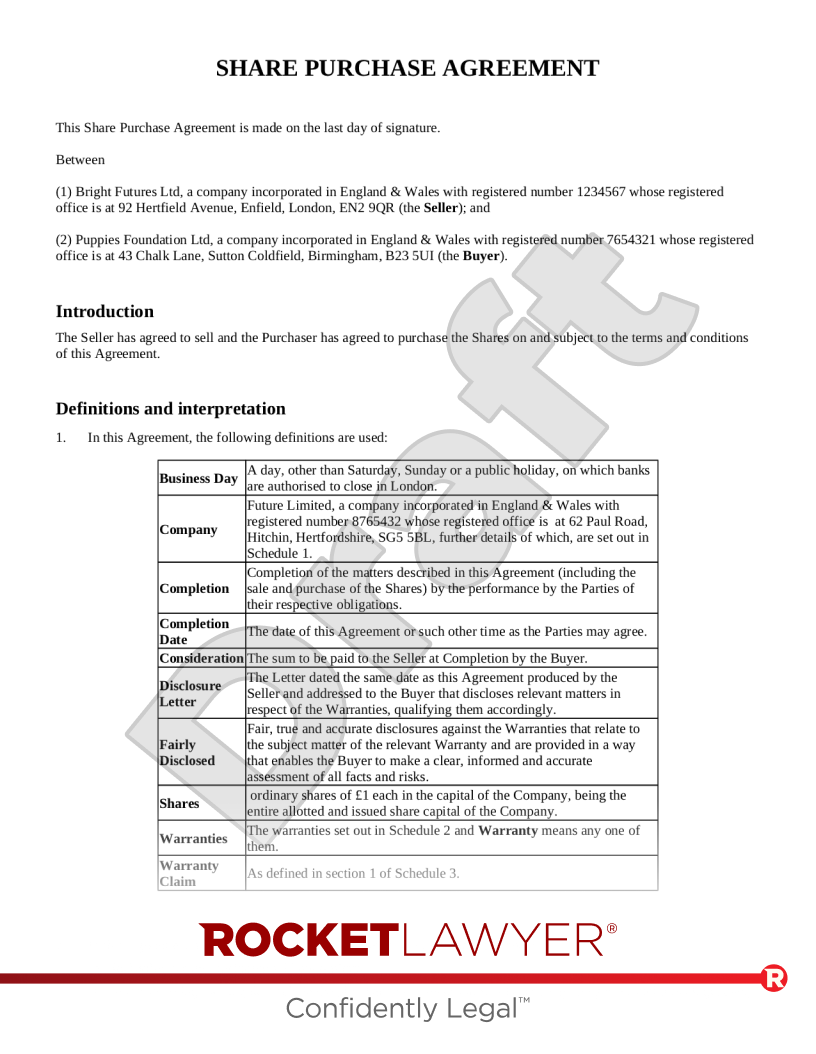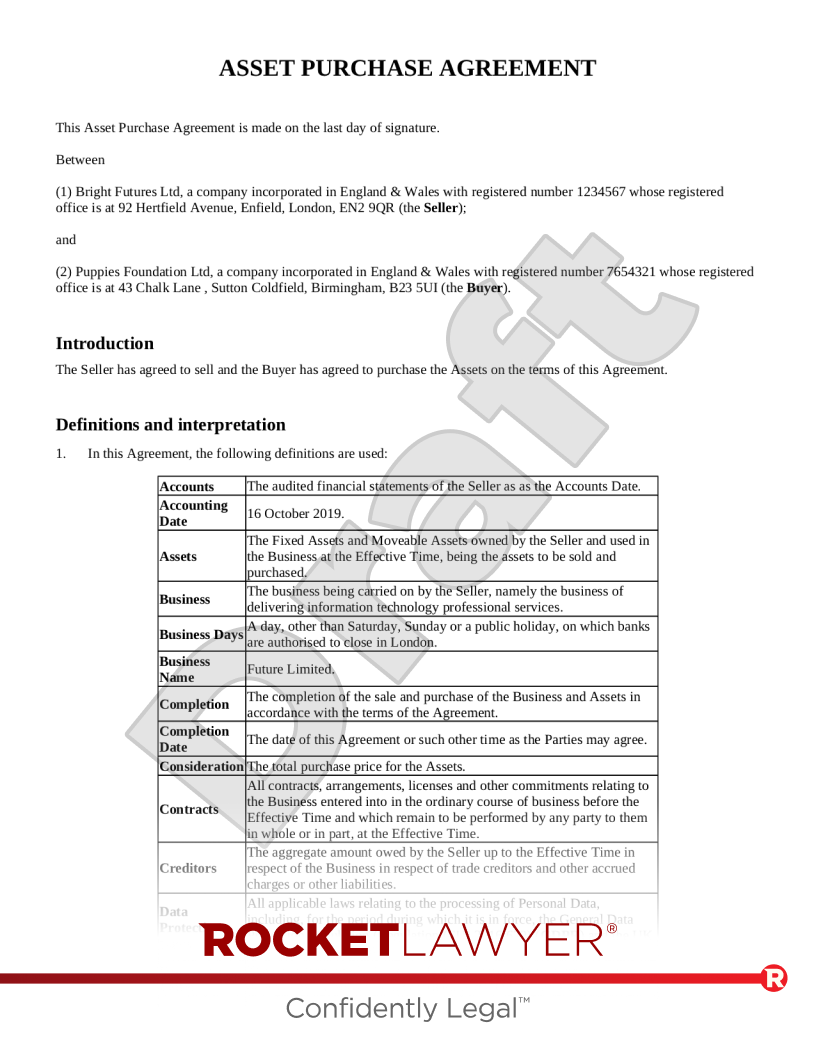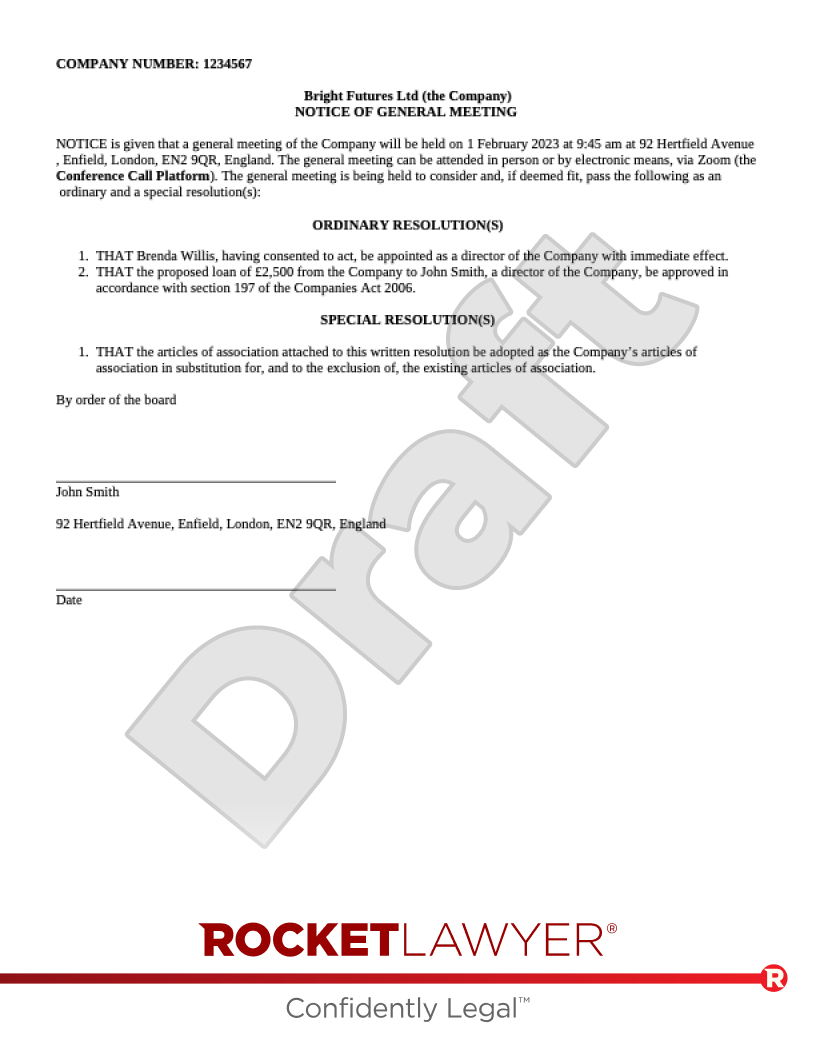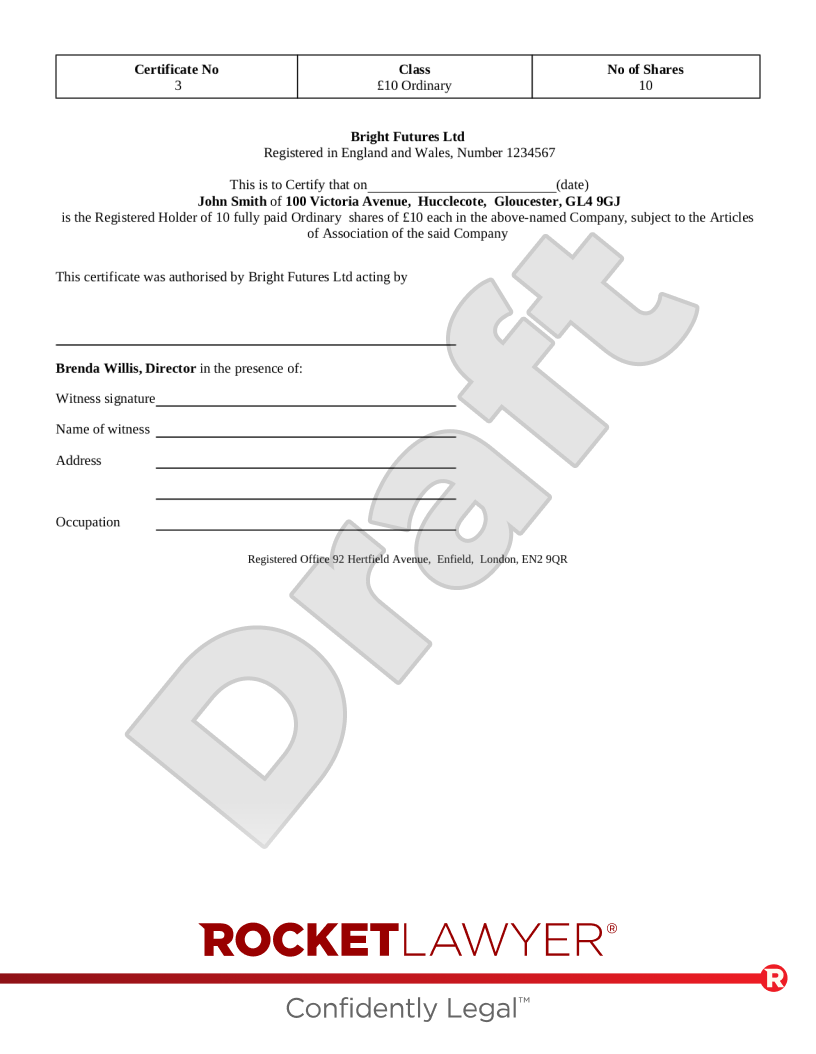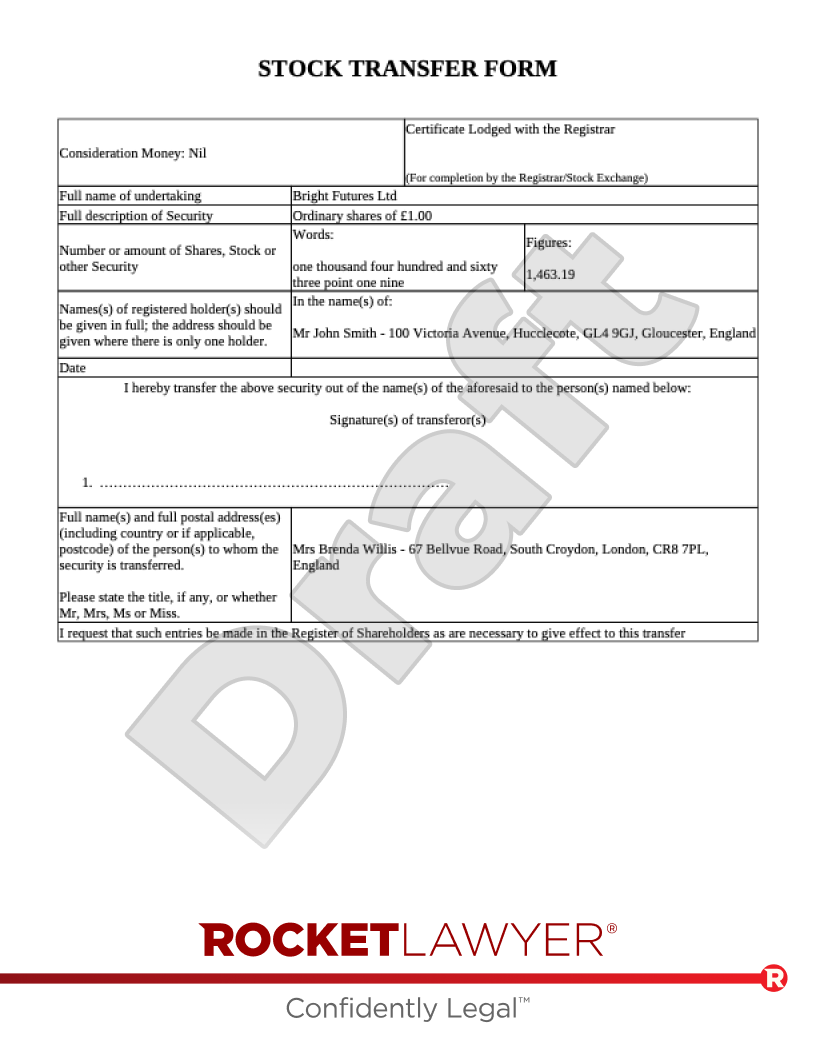Warranties are statements of fact, or promises, that parties give to assure the another party that certain conditions are true. Warranties are very important in any Share Purchase Agreement as they reduce the risks imposed by a share sale for the buyer.
One of the main aims of the warranties is to provide the buyer with a potential remedy if a statement about the target company turns out to be untrue, which changes the true value of the target company.
Warranties can highlight any information that the buyer ought to know and which could affect the value of the company or even the buyer’s decision to buy the business. Using warranties also acts as an information-gathering mechanism for the buyer and assists in any due diligence undertaken prior to completing the share sale. This can give the buyer some comfort in the event that the business is not as the seller has represented it to them, eg if the company has some hidden problems or faces upcoming litigation.
If a warranty turns out to be untrue, for example, a warranty that the target company is not currently in any litigation, then this can result in a successful claim for damages. The buyer will need to show that the breach of warranty resulted in a substantial loss (ie a reduction in the value of the target company).
For more information, read Warranties in share purchase agreements.



